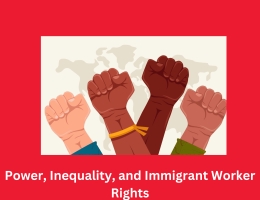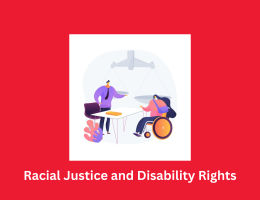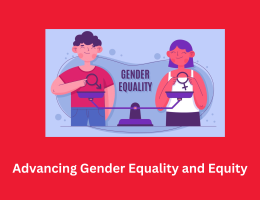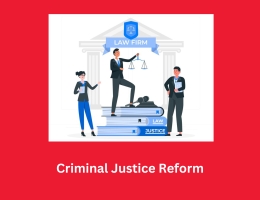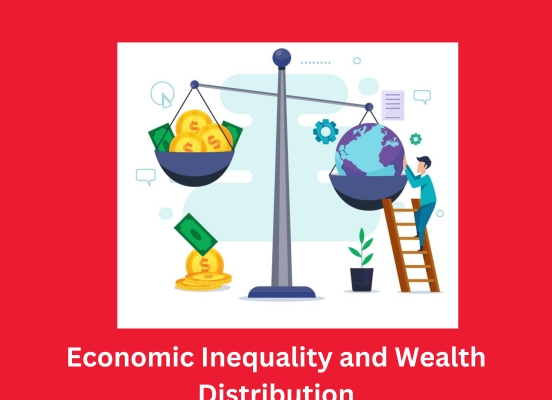
Economic Inequality and Wealth Distribution
- By admin --
- Friday, 08 Mar, 2024
Introduction:
Disparities in the distribution of wealth and economic inequality have a significant impact on society, influencing people's access to opportunities, resources, and general well-being. In order to achieve economic justice for all members of society, this article will look at the many causes and effects of economic inequality as well as provide some remedies.
Understanding Economic Inequality:
Economic inequality refers to the unequal distribution of wealth, income, and resources among individuals and groups within a society. It is influenced by various factors, including but not limited to, education, employment, taxation policies, access to healthcare, and inheritance.
Causes of Economic Inequality:
- Structural Factors: Structural factors such as globalization, technological advancements, and changes in labor markets contribute to widening income disparities. Globalization has led to the outsourcing of jobs and the decline of labor unions, resulting in stagnant wages for many workers.
- Tax Policies: Regressive tax policies, loopholes, and tax havens disproportionately benefit the wealthy, exacerbating economic inequality. Wealthy individuals and corporations often pay lower effective tax rates than middle and low-income earners.
- Educational Disparities: Unequal access to quality education perpetuates economic inequality by limiting opportunities for social mobility. Students from low-income families often attend underfunded schools with fewer resources and opportunities for advancement.
- Systemic Discrimination: Discrimination based on race, gender, ethnicity, and other factors contributes to economic disparities. Minority groups face barriers to employment, housing, and financial services, hindering their ability to accumulate wealth and achieve economic stability.
Consequences of Economic Inequality:
- Social Mobility: Social mobility is hampered by economic inequality, making it challenging for those from low-income families to climb the economic ladder. This makes it harder to realise the American Dream and prolongs poverty across generations.
- Health Disparities: Health disparities and economic disparities always go together since low income earners usually have no access to good housing, healthy foods and medical care. And this situation frequently results in more chronic diseases, illnesses and deaths among the least advantaged members of society.
- Political Influence: By giving political campaigns money, lobbying politicians and pursuing corporate aims, the rich and the powerful employ resources and power to manipulate politics.This ensures that the policy favours the rich and is undemocratic.
- Social Cohesion: High levels of economic inequality erode social cohesion and trust within communities. Economic disparities can lead to resentment, social unrest, and polarization, posing challenges to social cohesion and stability.
Solutions to Achieve Economic Justice:
- Progressive Taxation:Generating money to finance social programs, education, and infrastructure projects can be achieved through the enactment of progressive tax measures on affluent individuals as well as the scrutiny of tax loopholes. This redistributive approach promotes economic fairness and reduces income inequality.
- Investment in Education and Workforce Development: When individuals put their money on education plus workforce development initiatives it means everyone gets proper training so as to pursue whatever career they want as well as, caters for highly respected citizens who have low incomes.
- Addressing Systemic Discrimination: Implementing policies to address systemic discrimination in employment, housing, and financial services is essential for reducing economic disparities. This includes enforcing anti-discrimination laws, promoting diversity and inclusion initiatives, and providing resources for minority-owned businesses.
- Universal Basic Income (UBI): Looking into how implementing a universal basic income (UBI) plan could give everyone a steady income might just help tackle the issue of economic uncertainty and difficulty. Additionally, via promoting entrepreneurship and consumer spending, UBI can boost economic growth.
- Worker Empowerment: To empower people and assure honest salaries and running conditions, labour rights have to be reinforced, the minimum salary may be raised, and collective bargaining can be advocated. This entails closing the gender wage gap, assisting worker-owned cooperatives, and defending the freedom of labour unions to form.
Conclusion:
To sum up, societal good and economic advancement are adversely affected by inequalities in riches distribution and poverty. A better and inclusive society can be created through understanding why economic inequality exists as it is now- why poor are poor, middle class feels like it’s evaporating and what rich are doing differently- coming up with strategies for dealing with it.

